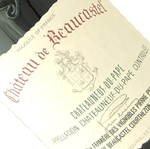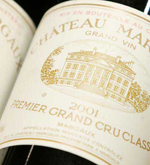Improved techniques
No one can really deny that wine making methods have changed a big deal since the beginning of the centaury. At one time each maker worked according to local tradition and personal initiative, whereas the knowledge they now have at their disposal, gleaned from serious oenological study, has reduced the role of chance to a minimum. Scientific methods have replaced intuition and empirical judgement. Furthermore, there is a rigorous and regular control of temperature of during fermentation. However, these modern techniques do not imply a total commitment to the use of chemical products. Some French wines makers, comment speak by themselves :
“It is essential to conserve the wines natural character, and therefore to eliminate as far as possible the use of artificial products.”
“The greatest quality of the wine grower is patience. You must never force nature.”
To be very fair to summary a general opinion: The new wine making techniques meet little opposition. The new methods yield very interesting results – particularly in mediocre years when they help to produce a good wine in spite of unfavourable circumstances. There are no longer any truly terrible vintages, whereas previously they were all to frequent. Furthermore, in good years these modern techniques produce a wine that is far superior to anything that could have been made under the same circumstances in the past. White wines, in particular are much fresher and altogether better today than they were yesterday.” Thanks to the new methods, the quality of wine has genuinely improved, and if over-production can be curtailed, future results will be even better.
Back to DfR wines slection & services









